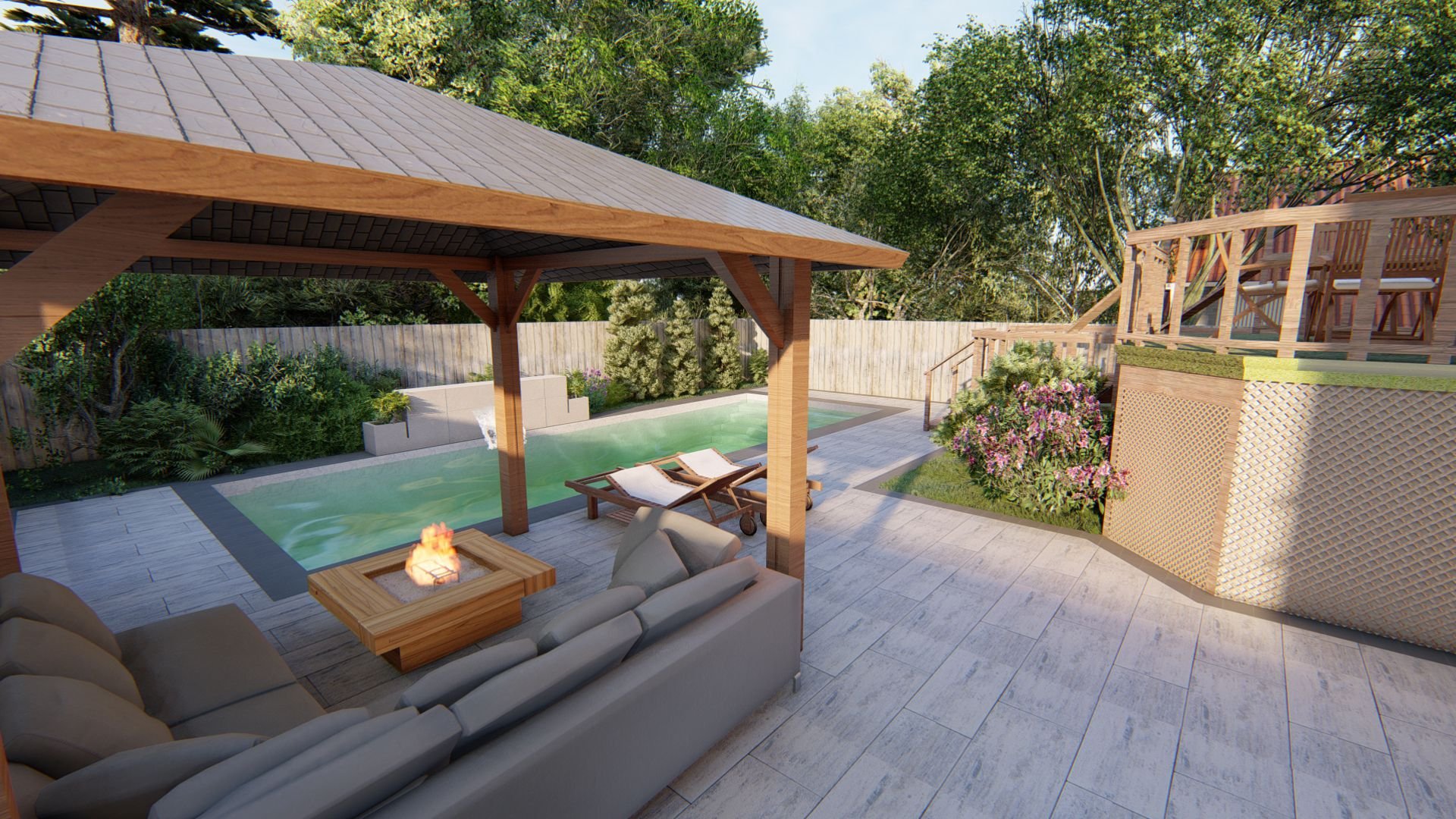
Pool and Gazebo Permit
Residential Permit Services
↳ Legal Basement Permit
↳ Decks and Porches Permit
↳ Demolition Permit
↳ Home Renovation Permit
↳ HVAC and Plumbing Permit
↳ Interior Alteration Permit
↳ Multiplex Permit
↳ New House Permit
↳ Pool and Gazebo Permit
↳ Re-zoning Permit
↳ Removing Load Bearing Wall Permit
↳ Walkout/Side Door Permit
↳ Small Addition Permit
↳ Tree Removal Permit
Curious About Pool and Gazebo Permits?
Getting a swimming pool permit is usually necessary before building or installing swimming pools on your property in Toronto and the GTA (Ontario). The permit process is utilized to guarantee the pool's safety and compliance with local laws.
In Toronto, a form must be filled to apply for swimming pool permits. You will need to include the dimensions of the pool, including its location and fencing details, along with the application.
Apart from the application and plans, other permits or approvals may be required, such as a building permit for construction projects like pool houses or other structures. Zoning regulations that dictate the location and size of swimming pools may also apply.
A permit for a swimming pool in Toronto can be expensive and dependent on the size and complexity of the project. Keep in mind that failing to obtain a permit for reserving snookers in Richmond Hill can lead to fines and penalties. As a result, it is important to ensure that you comply with the correct procedures and obtain all necessary permits before beginning your pool venture.

Lot Grading Plan
To install a swimming pool on your property in Toronto, you must have arranged grading plans for the entire lot. An outline lot grading plan is a drawing that displays the current and future grades of your property, as well surface water management features like drainage.
The lot grading plan is designed to prevent any modifications to the property's grade from negatively impacting nearby properties or the stormwater management system of the city. The City of Toronto's Lot Grading By-law and the Engineering and Construction Services division must approve the plan.
The process of obtaining a swimming pool permit in Toronto requires the submission of your lot grading plan and other documents, such as pool specifications. To ensure compliance with all bylaws and regulations, your application and lot grading plan must be reviewed as per the City's Building Division.
The installation of a swimming pool without the necessary permits and approvals can result in fines and legal proceedings. Moreover, incorrectly designed or installed lot grading can cause severe property damage and affect nearby properties, making it crucial to seek the assistance of a qualified professional who can design and implement optimum lot marking plans.
When putting up your new swimming pool on your Toronto property, it's crucial to ensure that your lot grading plan meets all the necessary criteria. The City's Building Division and a qualified professional can guarantee the safety, legality, and impact on your neighbors and the environment of your proposed swimming pool project.
Factors to consider when applying for a permit:

To construct or install any accessory structure on your property, a permit for accessory structures is mandatory, including Gabebo, Pergola, and Cabana. Sheds, gazebos and pergolas as well; cabanas or fences are all examples of accessory structures that are not part of the main dwelling.
To apply for an accessory structure permit in Toronto, you need to complete a form available on the City of Toronto website. Provide detailed plans and specifications for the structure, including its size, location, and design features, in addition to the application.
Apart from the application and plans, other permits or approvals may be required, such as a building permit for larger structures, or constructing edging (a fence). Zoning regulations that dictate the placement and dimensions of supporting structures may also apply.
Depending on the size and complexity of the project, an accessory structure permit in Toronto may require a nominal amount. Contact the Building Division of the City of Toronto for information on permit procedures and fees.
In Toronto, obtaining an accessory structure permit can result in fines and penalties. It's important to ensure that you comply with the correct procedures and acquire all necessary permits before initiating your project. The City's Building Division and a qualified professional can ensure the safe, legal, and minimal impact on your neighbours and the environment by constructing your accessory structure.



